Politics
EU cybersecurity exercise: foster cooperation, secure free and fair EU elections
National and European partners tested their crisis plans and possible responses to potential EU cybersecurity incidents affecting the elections.
The exercise is part of the measures being implemented by the European Union to ensure free and fair elections in June 2024. It took place in the European Parliament and was organised by the European Parliament’s services, the European Commission and the EU Agency for Cybersecurity (ENISA). The drill allowed participants to exchange experiences and best practices, and will help them enhance their capacity to respond to cybersecurity incidents as well as to contribute to the update of existing guidelines and good practices on the cybersecurity of technology used in the election process.
European Parliament Vice-President Dita Charanzová underlined that “European democracy and the European Elections in particular, are faced with serious hybrid threats ranging from cyberattacks and other cyber-enabled incidents to disinformation and information manipulation. Today’s exercise, in which the European Parliament played a key coordinating role, allowed us to test and strengthen our capacity to react to these hybrid threats. It also served to underline that Member States and EU institutions are already working on the basis of well-established structures, networks and collaborations that will serve to secure free and fair European Elections in June 2024.”
Representatives from national electoral and cybersecurity authorities, together with observers from the European Parliament, the European Commission, CERT-EU and the EU Agency for Cybersecurity (ENISA), participated in the second edition of the exercise. While the main responsibility for protecting the integrity of the elections lies with EU Member States, this exercise helped fine-tune their common preparedness when facing potential cyber and other hybrid threats and their ability to swiftly develop and maintain situational awareness at national and EU level if a serious cybersecurity incident were to occur.
All is in place to ensure that European citizens can trust the EU electoral process. Risks to elections can take various forms from information manipulation and disinformation to cyber-attacks that compromise infrastructures.
Based on various scenarios featuring potential cyber-enabled threats and incidents, the exercise allowed participants to:
- Deepen their knowledge of the level of critical aspects of European elections, including an assessment of the level of awareness among other stakeholders (e.g. political parties, electoral campaign organisations and suppliers of relevant IT equipment);
- Enhance cooperation between relevant authorities at national level (including elections authorities and other relevant bodies and agencies, such as cybersecurity authorities, Computer Security Incident Response Teams (CSIRTs), Data Protection Authorities (DPAs), authorities dealing with disinformation issues, cybercrime units, etc.) as well as at EU level, such as the Commission services in charge of enforcement of the Digital Services Act (DSA);
- Verify existing EU Member States’ capacity to adequately assess the risks related to the cybersecurity of European elections, promptly develop situational awareness and co-ordinate communication to the public;
- Test existing crisis management plans as well as relevant procedures to prevent, detect, manage and respond to cybersecurity attacks and hybrid threats, including disinformation campaigns;
- Identify all other potential gaps as well as adequate risk mitigation measures which should be implemented ahead of the European Parliament elections.
Background
More information on the European elections: https://elections.europa.eu/en/
DISCLAIMER: Information and opinions reproduced in the articles are the ones of those stating them and it is their own responsibility. Publication in The European Times does not automatically means endorsement of the view, but the right to express it.
DISCLAIMER TRANSLATIONS: All articles in this site are published in English. The translated versions are done through an automated process known as neural translations. If in doubt, always refer to the original article. Thank you for understanding.
Politics
Authorities in Sicily have called on airports to stop selling mafia-themed souvenirs
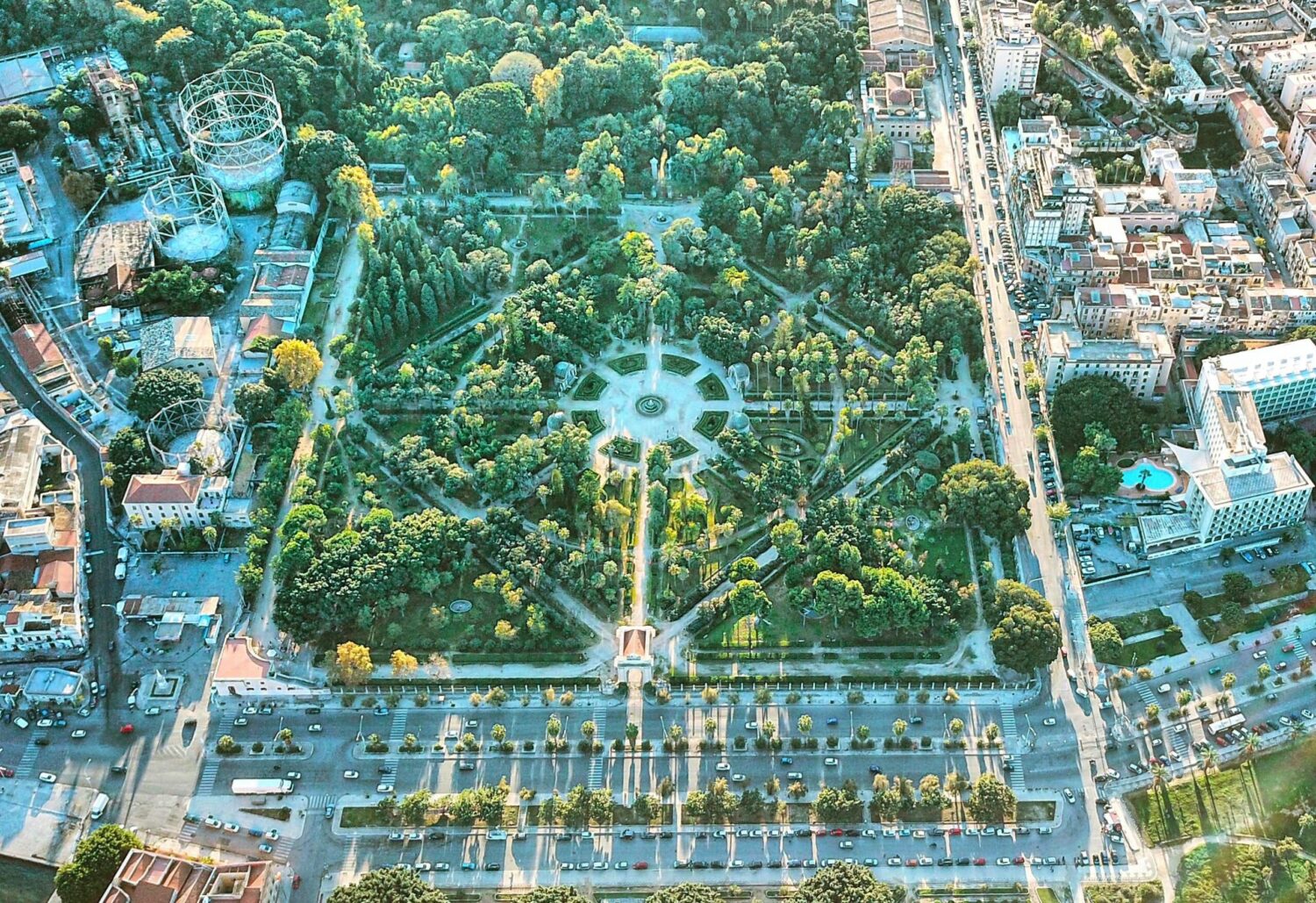
Sicily’s regional government today asked the area’s airports to stop selling souvenirs with mafia-related images.
“Let the sale of mafia-themed souvenirs and trinkets end in the shops and commercial establishments of Sicilian airports,” urged Alessandro Aricho, the regional mobility adviser.
The official wrote to the managements of the operators of the airports in Palermo, Catania, Comiso, Trapani, Lampedusa and Pantelleria.
“Maintaining a dignified image, devoid of the usual negative stereotypes, is without a doubt a firm line to be followed in the place of first arrival for tourists and visitors to Sicily,” he added.
Illustrative Photo by Mauro Reem-Itchy: https://www.pexels.com/photo/aerial-view-of-city-1628153/
Politics
The Turkish Orthodox Church wants Zelensky to be held accountable
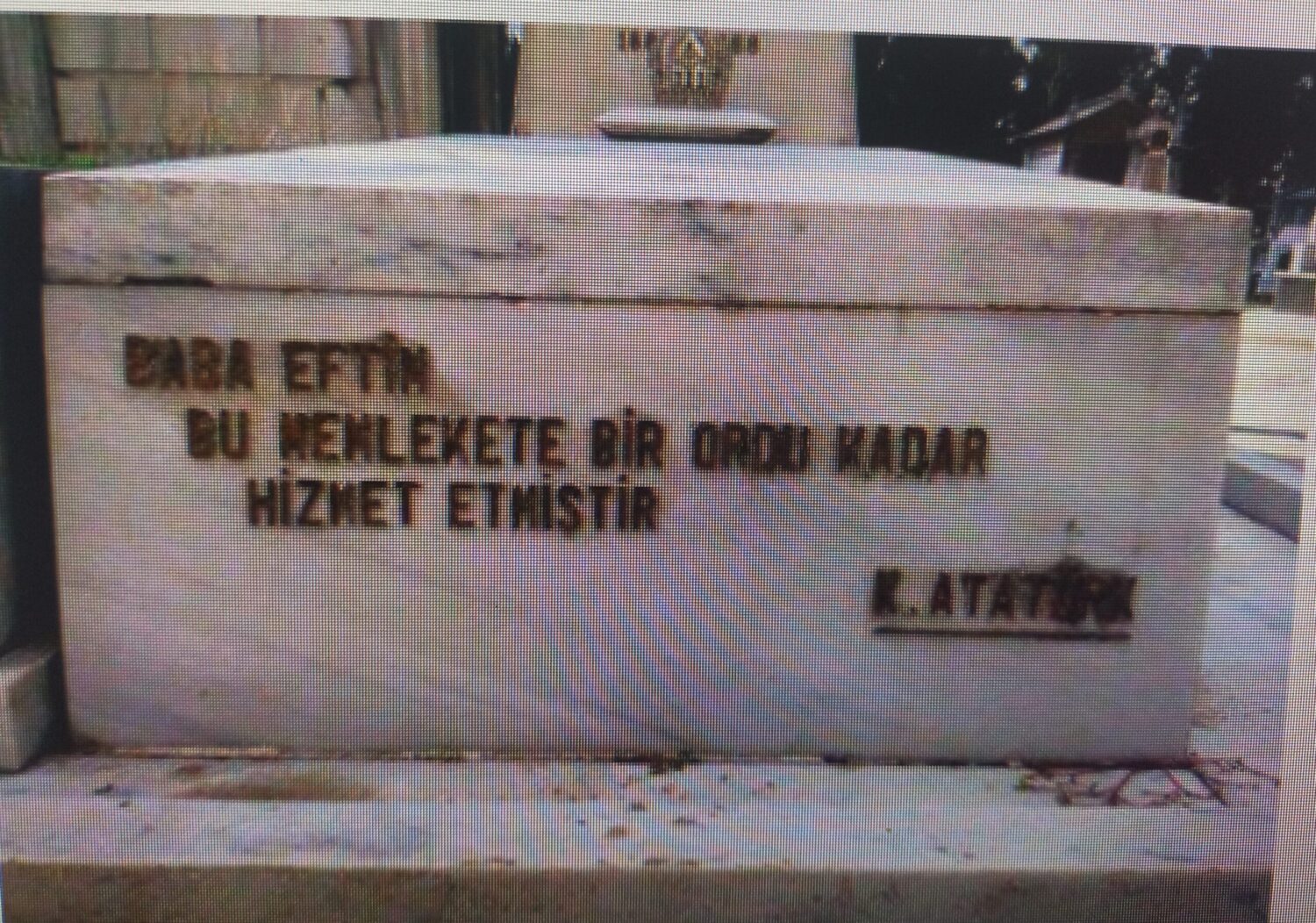
The Turkish Independent Orthodox Church called Ukrainian President Volodymyr Zelensky’s address to Patriarch Bartholomew of Constantinople as “ecumenical” a crime against Turkey’s territorial integrity and an “attempted riot” against its constitutional order. She called on Fener, as the Patriarchate of Constantinople is called, and the external forces that support it, to be held accountable, the church said in a statement quoted by TASS. It was previously reported that in a telephone conversation with Patriarch Bartholomew of Constantinople on August 21, Zelensky called him “ecumenical patriarch.”
The President of Ukraine wrote on the social network X (formerly Twitter) that he discussed with Patriarch Bartholomew the law on the banning of the canonical Ukrainian Orthodox Church adopted by the Verkhovna Rada, thanked for the support for Kyiv and positively assessed the cooperation with Fener.
“On August 21, Ukrainian President Volodymyr Zelensky again called Bartholomew, archpriest of the Greek Church of Constantinople, “ecumenical patriarch” and announced to the world community that the cooperation between them continues. This step is a riot against the constitutional order of the Republic of Turkey, a crime committed in the international arena against its territorial integrity. Fener, who is trying to proclaim his independence on our territory, and his internal and external supporters must be brought to justice immediately,” Turkish Orthodox Church spokesman Selcuk Erenerol said.
The Turkish Orthodox Church, established in 1921, is officially registered as a religious body in Turkey, although it is not recognized as canonical by other local Orthodox churches.
Bartholomew has repeatedly been criticized in Turkey for his participation in international events with the status of ecumenical patriarch, which is not recognized by Ankara. In June, he participated in a conference on Ukraine in Bürgenstock, Switzerland, spoke at it and signed the closing declaration as Ecumenical Patriarch. The Turkish Foreign Ministry subsequently denied reports that the Patriarch of Constantinople had participated as a state person, and Ankara demanded an explanation from the organizers for having his signature on the closing declaration.
Turkish authorities say their position on the status of the Patriarch of Constantinople remains unchanged based on the Lausanne Peace Treaty of 1923, which recognized him as the head of the Greek Orthodox community in Turkey.
Illustration: Grave Epitaph – “Papa Eftim served this country as much as an army” Mustafa Kemal Atatürk…
Politics
Deacon Andrey Kuraev was accepted into the clergy of the Exarchate of the Ecumenical Patriarchate of Lithuania
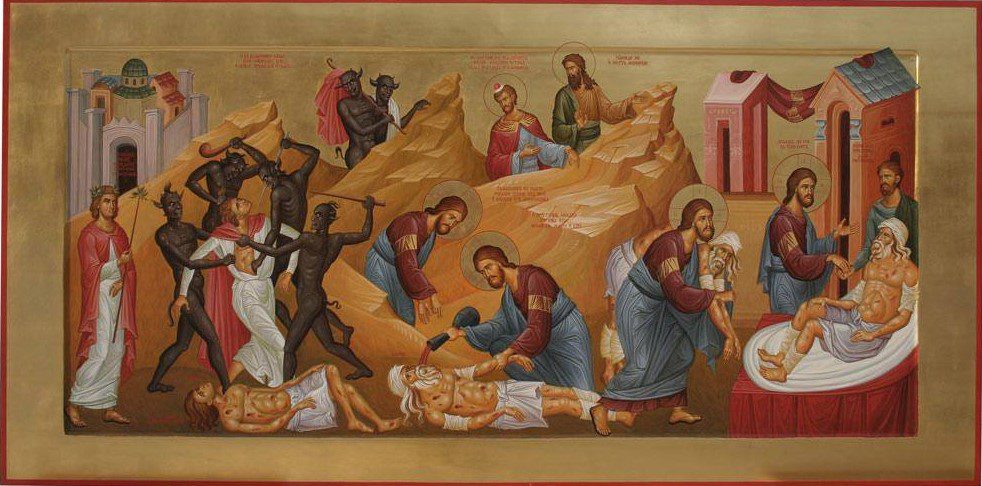
On July 23, 2024, Archdeacon Andrey Kuraev was admitted to the clergy of the Exarchate of the Ecumenical Patriarchate of Lithuania in response to his request, according to an official announcement of the Exarchate. Specifically, it says:
“Archdeacon Andrei, born in 1963, is a famous theologian and missionary, author of many books and doctor of philosophy and theology. During his more than thirty years of ministry, he has brought many people to Christ. Since 2013, because of his criticism of the activities of the Moscow Patriarchate and against Patriarch Kirill, he has been subject to various repressions by the Church and the Russian state. For condemning Russian aggression in Ukraine, the cleric was fined twice and declared a “foreign agent”. In 2023, Patriarch Kirill deprived him of his holy rank, but in April 2024, the Ecumenical Patriarch accepted his appeal and, after examining the basis of the accusation, decided that Archdeacon Andrey Kuraev was deprived of his holy rank not for religious, but for political reasons reasons, in connection with which Fr. Andrei was restored in the same condition. He will continue his clerical ministry as Archdeacon of the Lithuanian Exarchate. Archdeacon Andrey Kuraev will continue his church service as a missionary and will not be tied to any parish, but will continue to preach the Gospel in different cities and countries, observing church rules.”
The Exarchate of the Ecumenical Patriarchate of Lithuania was registered at the beginning of 2024. The establishment of this ecclesiastical jurisdiction came about after Vilnius Metropolitan Innokenty (ROC) removed under pressure from Moscow five priests, until then his close associates, because of their public opposition to the pro-war policy of the Moscow Patriarchate. They were also among the first priests deprived of their rank for this reason, who filed a complaint with the Ecumenical Patriarch and were restored to ministry. Later, they were joined by other priests from Belarus and Russia.
Currently, the Exarchate of the Ecumenical Patriarchate of Lithuania does not have its own bishop, and its exarch is Fr. Justin Kiviloo, who is originally from Estonia.
Meanwhile, according to information on his personal page, the former cleric of the Russian Orthodox Church Peter (Eremeev) became a cleric of the Bulgarian Orthodox Church on May 1, 2024.
Peter (in the world Ruslan Nikolaevich Eremeev; born December 2, 1973, Armavir, Krasnodar Krai) is an Orthodox cleric. From December 6, 1998 to March 11, 2024 – a cleric of the Russian Orthodox Church. From April 3, 2024 to April 30, 2024 – a cleric of the Patriarchate of Constantinople. From May 1, 2024 – a cleric of the Bulgarian Orthodox Church. Doctor of Theology (2004). Rector of the Russian Orthodox University of St. John the Theologian (2010-2021). Abbot of the Vysoko-Petrovsky Stavropegic Monastery (2013-2021). Chairman of the Commission for Work with Universities and the Scientific Community under the Diocesan Council of the City of Moscow (2019-2021). Rector of the Church of the Resurrection of the Word at the Vagankovskoye Cemetery (2013-2023). Chairman of the Interdepartmental Commission on the Education of Monastics of the Russian Orthodox Church (2016-2024). Editor-in-chief of the official periodical of the Synodal Department for Monasteries and Monasticism – the magazine “Monastic Herald” (2014-2024).
Ban from priesthood and defrocking in the Moscow Patriarchate
On November 9, 2023, he was dismissed by the patriarch from the post of acting rector of the Church of the Great Martyr Demetrius of Thessaloniki in the village of Dmitrovskoye, Krasnogorsk District, Moscow Region. According to the information contained in the appeal of the employees and parishioners of the church in Dmitrovskoye to Patriarch Kirill, the pretext for the removal of the rector was the imitation of the disappearance of icons from the church, organized by Abbess Xenia (Chernega). As a result, Chernega took Yeremeyev’s place. On December 22 of the same year, during an official business trip to Bulgaria, carried out with the blessing of the Patriarch, he was removed from the post of rector of the Church of the Resurrection of the Word at the Vagankovskoye Cemetery and banned from serving. Publications about violations in the parishes of the abbot began to appear on the Internet. In May 2024, Peter (Yeremeyev) himself rejected all accusations: “My obligations to the Moscow Diocese were fully fulfilled by the end of 2023. I transferred the affairs of the Church of the Great Martyr Demetrius of Thessaloniki in Dmitrovskoye and the affairs of the newly built church complex on Nikolina Gora, as well as the affairs of the Church of the Resurrection of the Word at the Vagankovskoye Cemetery to the newly appointed rectors. The Audit Commission of the Moscow Diocese conducted an audit of the financial, property and other aspects of the parish activities and drew up the required acts of acceptance and transfer of the churches. There were no comments on the part of the Audit Commission and the new rectors regarding the results of the audit and transfer of cases.” However, on February 8, 2024, by decision of the diocesan court of the city of Moscow, he was defrocked, citing the fact that Abbot Peter ignored three summonses to court. The decision was to come into force after approval by Patriarch Kirill. By Decree of Patriarch Kirill No. U-02/39 of March 11, 2024, the court decision came into force. According to the statement of Hegumen Peter (Eremeev): “none of the three indicated summonses to the church court were sent to me: not to my passport registration address, not to my email, not to my public messengers on social networks.” Having called the decision illegal, he appealed it to the court of the Patriarchate of Constantinople.
In the Bulgarian Orthodox Church
In April 2024, the court of the Patriarchate of Constantinople positively considered the appeal of Hegumen Peter, after which he was accepted into the clergy of the Patriarchate of Constantinople. This did not become known immediately.
On April 20, 2024, he was seen co-serving with the bishops and clergy of the Plovdiv Diocese of the Bulgarian Orthodox Church. Among those attending the service were Metropolitan Nikolay (Sevastianov) of Plovdiv, vicar bishops Arseny (Lazarov) and Vissarion (Grivov).
After receiving the letter of release, the abbot was accepted into the staff of the Plovdiv Metropolitanate.
Illustrative photo: Orthodox icon “The Parable of the Good Samaritan”
-
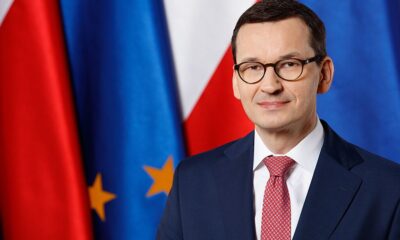
 Politics5 days ago
Politics5 days agoPoland’s Former Prime Minister Mateusz Morawiecki Eyes Leadership of European Conservatives and Reformists
-

 EU & the World5 days ago
EU & the World5 days agoDoes Travis Kelce Appear in Swift’s ‘I Can Do It With a Broken Heart’ Music Video?
-

 Sports5 days ago
Sports5 days agoAtalanta: PSG-Lookman, there is news
-
EU & the World5 days ago
Mike Lynch Yacht Update: Fifth Body Recovered Off Coast of Sicily
-
Travel6 days ago
New Brussels to Venice night train: The 9 cities en route, what it will cost and how to book
-

 EU & the World5 days ago
EU & the World5 days agoAshanti & Nelly Welcome First Child Together & Reveal Baby Boy’s Name
-
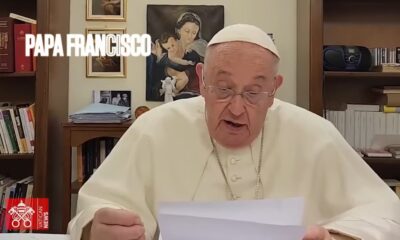
 Health & Society5 days ago
Health & Society5 days agoPope Francis calls on religions to unite to reduce demand for drugs
-
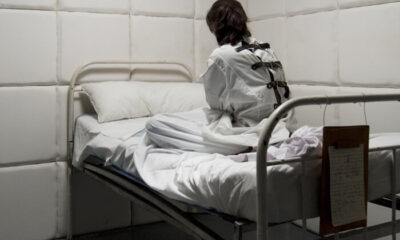
 Health & Society5 days ago
Health & Society5 days agoSexual abuse, electric shocks, chemical restraints in Mental Health Care, report finds








